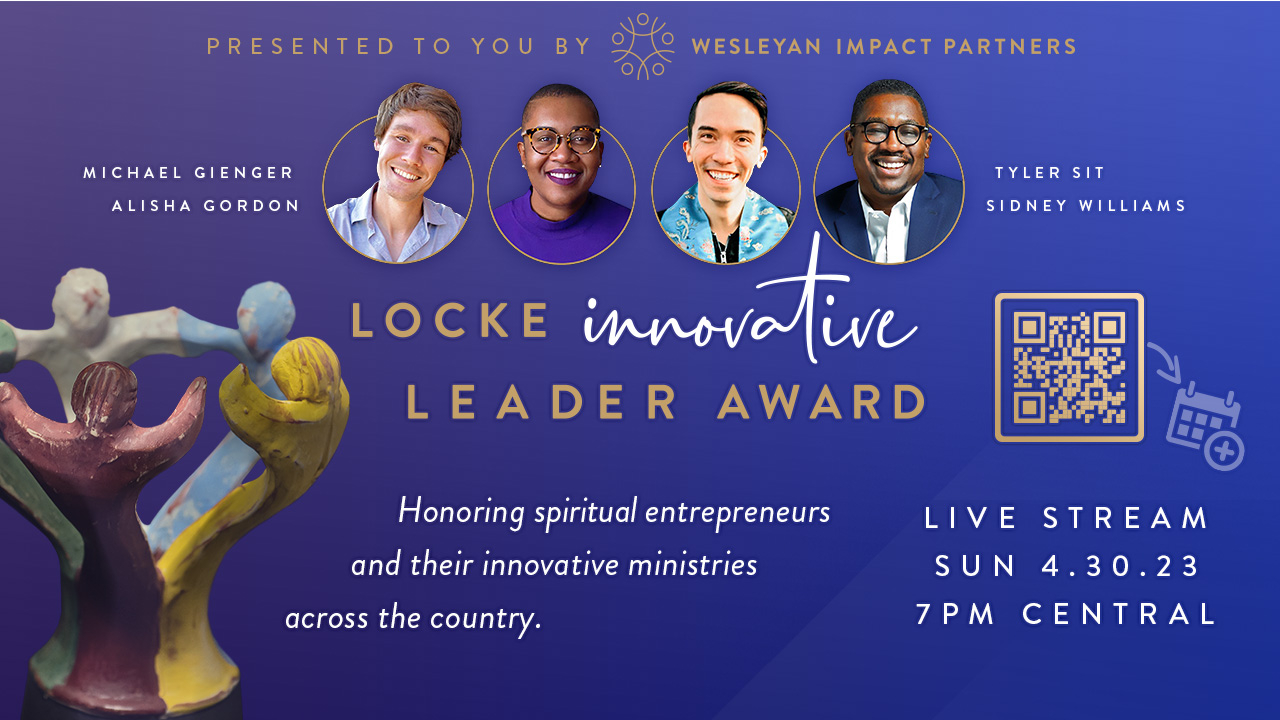Wesley Alum
WTS Impact Stories
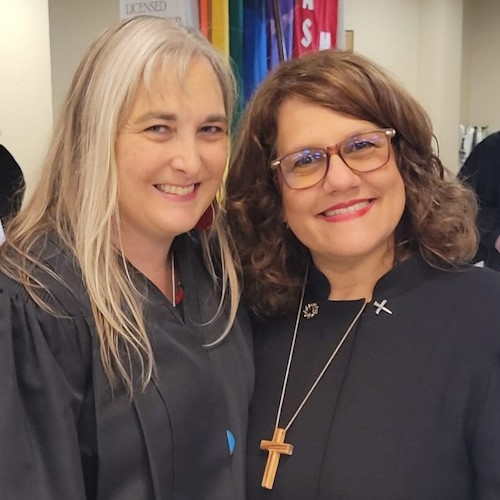

Rev. Marcela Jarman | Alumni Highlight
Rev. Marcela Jarman, (Pictured right, Master of Divinity, 2021) is Associate Pastor at Sterling United Methodist Church in Virginia.
“Growing up, religion was always a big part of my life. I felt drawn to God and wanted to serve God somehow, but I wasn’t sure how. It wasn’t until I attended a summer camp that I felt a strong calling to enter the ministry. From that moment on, I knew that seminary was my right path.
I heard about Wesley Theological Seminary through some friends at my home church. They spoke highly of the school and its commitment to training people from diverse backgrounds. I knew then that Wesley was the perfect fit for me.
I enrolled in the Master of Divinity program despite my background in architecture. It was a big change, but I was eager to learn and grow. One aspect of the program I loved was the opportunity to study with people who worshiped differently. Seeing how others approached faith and how we could learn from one another was eye-opening.
I learned much about myself and my relationship with God as I advanced through the program. I discovered strengths and weaknesses I didn’t know I had and better understood my purpose in life. The education I received at Wesley was truly a gift from God.
After graduating, I was commissioned as a Provisional Elder in the United Methodist Church. I am currently serving as an Associate Pastor at a church in Virginia, where I can put my seminary training into practice. It has been essential in helping me lead people in a healthy relationship with God and each other.
To anyone considering attending seminary, go for it! Don’t wait. It may be a significant change, but it will be worth it. Trust in God’s plan and be strong in His power. Wesley Theological Seminary is an extraordinary place with extraordinary opportunities, and I am forever grateful for the experience.”
If you would like to support the work of our students, faculty, and staff at Wesley, please click Give now to the Wesley Fund: https://www.wesleyseminary.edu/give/.
WTS Impact Stories
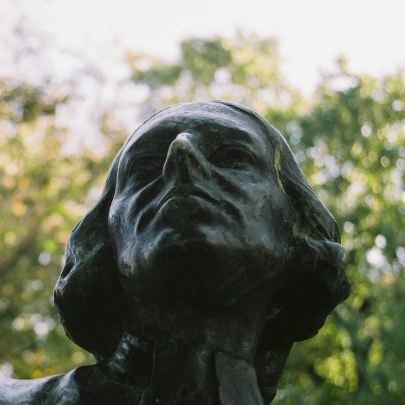

John B. Tate Jr. - Being a Preacher’s Kid
What led you to seminary?
I am a Preacher’s Kid “PK” and all my young life was exposed to preachers and their families. I like what I saw and experienced and when I was 13, attending the N. Georgia Conference Youth Camp (Camp Glisson) I felt God’s called to go into ministry. It was very powerful, vivid and everlasting.
How did you learn about Wesley and when did you know it was the right fit for you?
I had been an active pastor in the Virginia Conference of the United Methodist Church almost 20 years, and Wesley was “just across the river” from Virginia. I knew a number of students. Also, it offered the courses that I wanted and needed to get my D. Min. in 1988,
What was your major and Why?
I majored in Pastoral Care, since my focus was ministry to clergy alcoholics and their needs. Contributing to that was the fact that part of my local church ministry was, each week on Thursday afternoons, leading a group of alcoholics in the ACU at Fairfax hospital.
I felt that this was an excellent way for me to extend my pastoral ministry into the community plus that fact, that my own Dr. enlisted me to help lead the group.
I felt that in order to be the best pastor I could be my participation in this graduate program would be a great benefit. My church was in agreement with my weekly work at the hospital. As a result of this I earned a D.Min. in Pastoral Care in 1988 from Wesley Seminary.
What was your experience of learning and studying with individuals who worshiped differently from you?
One of the great benefits of working with students of other faiths and denominations was that I was exposed to different thought processes, different approaches to learning and thinking, different theological positions and also to some different worship. I also felt a great broadening of my own understanding, thinking and theology by being in class and working with people of other denominations and other faiths. It was an invaluable experience that has lasted me a lifetime.
What did you learn about yourself as you advanced through the program?
First of all I learned: “THAT I could do it.” I was not sure in the beginning. I also learned how much I AM able to do under the pressure of serving a church full time and attending school full time. It was a “tough gig,” but a very very rewarding one.
I had flunked out of college at one point and that had left me with a bit of thinking that maybe, just maybe I had bitten off more than I could chew. I learned that my work and persistence would pay off and that I COULD do the needed work. AND that some of my work was actually “used by my teachers.”
I remember walking downs the aisle when I received my degree and suddenly realizing that I had accomplished something that I NEVER thought I could accomplish and something NO ONE in my entire family before me had accomplished.
What was the best thing about attending Wesley?
Perhaps the best thing about attending Wesley, was being together with students and a diverse group of people who were studying and working toward learning and understanding new areas of theology and new ideas of ministry. Also I felt that Wesley was the best place for me to accomplish my goal of attaining a Doctoral Degree in Theology that would be of great benefit to me and to those to whom I ministered. There IS always a sense of singularity of purpose.
Add that was the faculty and the leadership of the seminary. I felt that everyone involved with my classes and learning had not only MY best interest, but also wanted very much for everyone with whom they interacted to experience the highest degree of learning and understanding possible through our experience and classes at Wesley.
How has your degree helped you advance your ministry or vocational goals?
I felt from the very beginning of my experience at Wesley that the things I learned, the interaction with both professors and students, and the goals I accomplished contributed greatly to my greater success in ministry to those to whom I ministered and was pastor. I had a greater understanding of my subject matter and was able to actually put into practice the things I learned and wrote about in my project. I was very rewarding to receive phone calls and personal contacts asking me to deal with the subject of Alcoholic pastors. I felt my time, study and the dissertation was/is indeed was a model for “Ministry to Clergy Alcoholics. . .”
How are you engaging in ministry or service since graduation?
The short answer is “not much.” I am 91 years old, have been retired from the pastoral ministry since 1999, and have not been engaged in any active ministry (except for occasionally preaching for pastors who are away from their pulpits). Another answer is that the treatment of alcoholics has changed in many and various ways since I completed my project. I DO try and keep up with the changing landscape of Christian theology, but the only ministry in which I have been engaged in since 1999 has been filling the pulpit for pastors who were away from their pulpits. I STILL thoroughly enjoy preaching.
What advice would you give someone who wants to attend Wesley?
In a word—GO!! Wesley Theological Seminary is an excellent School of Theology. It has a wide, diverse and highly skilled, knowledgeable, trained and capable faculty and staff. I also am extremely impressed with the faculty’s close “connections” with the students and the community. Another plus for me would be it’s location. Being in the nation’s capital affords Wesley unique opportunities and resources to use both its location and it’s personnel to the best advantage of providing students AND pastors (graduates especially) with resources and opportunities to further advance and enrich their own ministry that are unique. No other seminary has such a geographic advantage, plus the personal of the school are as highly qualified and capable of any school in America—from my perspective.
Thank you for inviting me to comment on the seminary. Wesley is truly unique in the BEST used of the word.
WTS Impact Stories
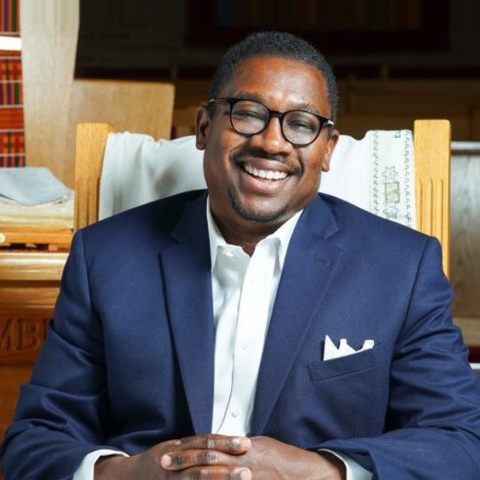

Locke Innovative Leader Award Honors Wesley Graduate
Rev. Dr. Sidney Williams, (DMin ’08) is one of four honorees of the Locke Innovative Leader Award. Dr. Williams is the President and CEO of Crossing Capital Group and Pastor of Bethel AME Church. He works with nonprofits and churches in underserved communities to achieve financial success in order to thrive. Congratulations, Dr. Williams!
WTS Impact Stories
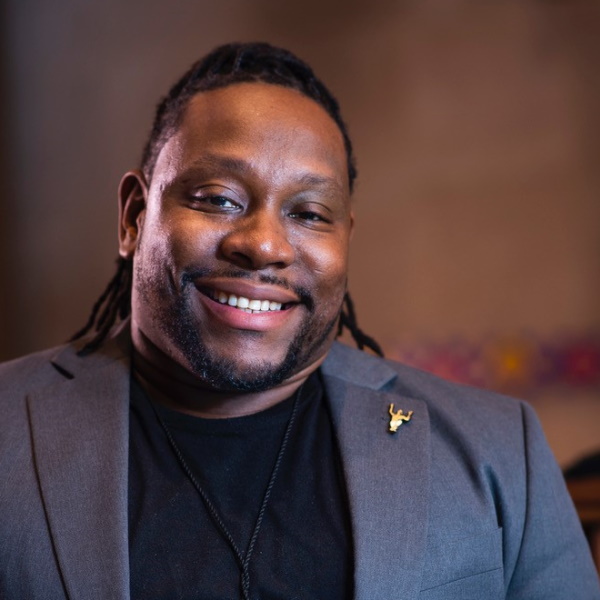

Artistic Director of Just One Spirit Dance Ministry / Dancer / Choreographer
Hometown: New Brunswick, NJ
Master of Arts ‘20
“I wrote on my first day of orientation, “Seminary is a seedbed. The seeds of faith planted in the seedbed of seminary life will bear fruit throughout the seminarian’s life and ministry. If you invest and trust the process of seminary life at Wesley, you will have the tools to bear fruit.”
MB: What led you to seminary?
EJ: Dance led me to seminary in 2016. At the age of 10, Claudia Gitelman introduced me to modern dance. I began my dance training with an after-school program called Art Matters. Art Matters was a modern dance program at Rutgers University in New Brunswick, New Jersey, to expose underprivileged youth to the art of modern dance. At 14, Michael Gary invited me to join his modern dance company, Acrodanse Theater Company. Acrodanse allowed me to meet people from different ethnic, social, economic, and religious backgrounds. My defining experience happened during Acrodanse’s annual presentation of the Gospel Gala in 2001. Gospel Gala was an evening of worship through the art of dance, and a blind man stood up during our Q&A, saying, “I could not see the performance, but I felt the spirit." I was the principal male dancer for Acrodanse for many years before I stopped dancing and relocated to Maryland. Ten years passed before I would dance again. In 2015 I auditioned and danced with Dancing by the Power Dance Company, where I met Wesley alum Dr. Josie Hoover. I danced my way to and through seminary.
MB: How did you learn about Wesley, and when did you know it was the right fit for you?
EJ: I remember Dr. Hoover shared information about Wesley Theological Seminary with me as I shared with her about my life, my dance journey, and my goals for a dance ministry. She invited me to a Wesley open house event. After being on campus and taking a class, I felt something familiar; Wesley created the space for me to meet people from different ethnic, social, economic, and religious backgrounds.
MB: How did you decide on the Master of Arts degree?
EJ: It allowed me to tailor my focus on worship, particularly dance, and the role of dance within the church's structure, specifically the black church. The black church has always produced an environment for black bodies to be free, but there’s a thin line between dance and worship.
MB: What was your experience learning and studying with individuals who worshiped differently from you?
EJ: My experience learning and studying with individuals who worshiped differently from me was a unique growth with a multi-faceted level. I enjoy being in a space where being different is the norm. The knowledge production from Wesley's classrooms was often dynamic and generative.
MB: What did you learn about yourself as you advanced through the program?
EJ: I learned many lessons, but the one that advanced me through my program was the concept of process. Everything is a process. Moreover, the process is a process, and through my seminary process, I learned that my connection with dance and movement gave me a better sense of my value toward scripture. I became more invested with dance as worship being a part of the same discussion (dance can be worship, and worship can be dance). I moved from reading scripture as static text to reading scripture as a movement in the living word. Through the advancement of my program, I began to exegete scripture to extract movement. I learned that my theology is a theology of movement rooted in liberation theology.
MB: How has your degree helped you advance your ministry goals?
EJ: The '200 Years of Returns' celebration in partnership with Colonial Williamsburg took place the weekend of Saturday, July 2nd, 2022, and marks 200 years since the first Black Americans settled in Liberia through the American Colonization Society. A project inspired by Black merchant Paul Cuffee's repatriation journey to Sierra Leone in 1815 and catalyzed by New Jersey's Robert Finley in 1822 that would result in what is arguably the earliest historical site of Black American liberation. "200 Years of Returns" is a collaboration between Burning Barriers Building Bridges (more commonly known as B4 Youth Theatre in Liberia), the Museum Theatre Department of Colonial Williamsburg (CW) in Virginia, United States, and Just One Spirit Dance Ministry with the Angles of Praise of Baltimore, Maryland. This interactive performance juxtaposes past and present "returns" to Liberia since 1822 when Black American settlers first encountered various African ethnic groups.
A team of seven dancers from Just One Spirit Dance Ministry with the Angles of Praise and five actors from B4 Youth Theatre in Liberia shared the stage with actors from CW Virginia at Hennage Auditorium in the Colonial Williamsburg Arts Museum to commemorate the "200 Years of Returns" anniversary. In December, as a continuation of '200 Years of Returns,' Just One Spirit and Angles of Praise will travel with B4 Youth Theatre and the Colonial Williamsburg theatre program to Liberia, West Africa, to celebrate '200 Years of Returns'.
MB: What was one of the best things about attending Wesley?
EJ: It's diversity.
MB: What advice would you give someone who wants to attend seminary and Wesley?
EJ: Speed bumps are a part of the process. Seminary is a space where you can and should ask all your questions to formulate more questions. At Wesley, there are many different levels of perspectives and understandings. Wesley offers something for everyone.
